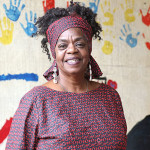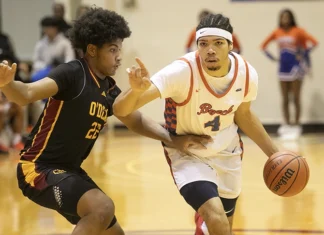
By Chris B. Bennett
The Seattle Medium
Former State Rep. Dawn Mason has been a social justice and education advocate for most of her adult life. Mason, whose mother was an educator and whose father ran a vocational school where he taught young men to build and repair cars, grew up believing that education was the key to doing well in life.
As a teen and young adult she was actively engaged in the Nation of Islam as an Administrative Assistant to the Editor of the Muhammad Speaks Newspaper and Registrar for the University of Islam. As a registrar at the school, Mason saw first hand how Black children, when expected to do well in a rigorous academic environment, can achieve at very high levels.
Mason believes that the philosophy of the Nation of Islam as it relates to the education of their children is a model that should be adopted by African Americans as a whole. The Nation, according to Mason, sees Black children, just like America sees White children, as the next leaders and guiders of their nation so they make sure that they were well-educated. A sentiment that Mason holds dear to her heart.
“If we go and start seeing our communities self-determined and self-regulated then we will make sure our children are educated,” Mason said. “Right now African Americans in this country are the only group of people who allow other people to educate their young children. No other people allow anyone [else] to educate their young people.”
Mason is fully aware of the school-to-prison pipeline that now exists in America, and is determined to make sure that as many young people and their families as possible have the necessary tools to avoid becoming part of the system.
“America has created a new economy,” says Mason. “It’s a failure economy – social services, jails, prisons, rehab centers, hosptitals. That’s an economy that is controlled by those who have no interest in us as African Americans. None.”
“Once we understand that we are going to have to create our own future for our children, we will do whatever it takes to get them educated. But when we’re dependent on others and they’re dependent on our children to be failures to put their children in college it will never change,” Mason continued. “We’ve bought into the failure industry, when we should be buying into the education of our children,”
During the 1980’s, Mason started an organization called “Parents For Student Success” where they taught parents how to manage their children’s succcessful education and how to be good advocates for their children. According to Mason, they started teaching poor people to advocate for their children in the same manner that middle-class parents do – from a perspective of entitlement.
“People aren’t born with any type of middle clas intellect, its just how people operate and how they communicate,” said Mason. “They [the parents] call up [the school] and they expect that someone’s going to return their call. They go in and they’re ready to talk to a teacher about their children’s gifts and talents.”
As it relates to the latter, Mason believes that parents should not allow teachers, counselors or school administrators to talk about the short falls of their child, but rather talk about the strengths, gifts and talents of their student. This allows the parents to have more control over the education experience of their child and prevents them from falling behind academically.
“Usually [the challeng] is very small, but when you go into schools they are going to tell you what your child can’t do,” says Mason. “[For example], Robert is really having a hard time with his concepts for numbers, but he reads so well. They don’t want to help him with his reading until they fix the nunbers. He may never have a good concept for numbers, so therefore, they’ll never move forward with their gifts.”
“In order to diminish the challenges then we must magnify the gifts,” said Mason. “We have to stop listening to the negatives about ourselves and listen to the positives.”
During the mid to late 90’s, Mason served as a Representative in the Washington State Legislature, where she was named Legislator of the Year for her leadership as the Ranking Member of the Higher Education Committee, and keeping college tuition affordable and access to higher education attainable for all students. She was also a prime sponsor of the GET prepaid tuition bill, and stopped the dismantling of Affirmative Action by the legislature forcing a state wide vote by the people of Washington State.
During her time in the Legislature, Mason also served on the finance committee and the trade, economic development and housing committee where she learned how people with money leveraged relationships and policies to better their community. Mason’s most recent endeavor, as board president of First Place Scholars, is the beneficiary of her experiences on these committees as they not only provide quality education to under-served children in Seattle, but they also own housing that serves as a source of income to the school.
“[When I entered the Legislature], I didn’t know anything about finances and I didn’t know a lot about economic development,” Mason said. “But it gave me my biggest exposure to [wealthy and powerful] men.”
“I did a trade mission to South Africa, I wasn’t going to get that out of the juvenile justice committee,” added Mason. “Now I’m on a board that owns housing.”
A proponent of charter schools, Mason was instrumental in helping First Place School become First Place Scholars – the state’s first charter school. And while the school has been in the news for compliance issues, Mason believes the school is in a better place because of it.
“The charter commission opened the school with a board and a contract when they were not in compliance,” Mason said. “And therefore, we had to build a school and run a school at the same time. Meaning we had to get the school in compliance. Get the finances together, while other schools had the luxury of just working on building their school.
According to Mason, First Place Scholars, after getting into compliance, is now one of the best and “most compliant’ schools in the state.
“We’re even in compliance for special ed and Seattle Public Schools is not in compliance for special ed,” says Mason.
While Mason may never know everyone that her life’s work has touched, she takes great pride in knowing that, through First Place Scholars, she is a part of an institution that is providing under-served children a chance to reach their full potential. And regardless of their circumstances in life, the children are nutured in an einvrionment that breeds success.
“Once we expect our children to be excellent, they will be,” says Mason.



